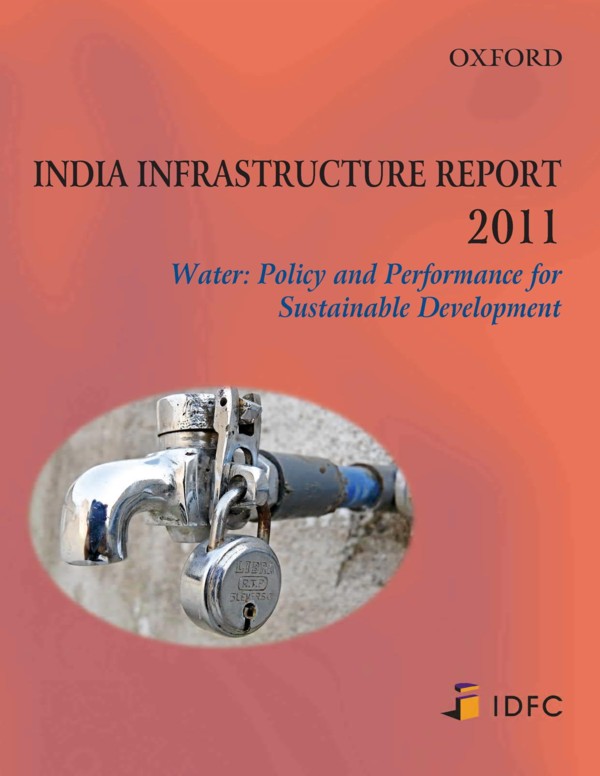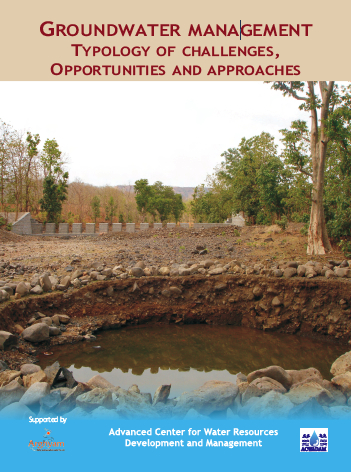Philippe Cullet
Intersectoral water allocation and conflicts
Posted on 17 Nov, 2015 05:28 PMBesides water scarcity, allocation of water has become an important concern in India over the last few decades.

The groundwater model bill: Rethinking regulation for the primary source of water – A paper by Philippe Cullet in EPW
Posted on 21 Nov, 2012 11:50 AMThis article starts by examining the basic principles governing access to and use of groundwater inherited from the past and the partial reform framework proposed since 1970s. The second section brings out some of the key shortcomings of the existing legal framework. Finally, the third section examines the latest model available for reforming groundwater regulation, the Planning Commission’s Model Bill for the Conservation, Protection and Regulation of Groundwater, 2011.
National water framework law – An explanatory note developed by the Sub-Group of Planning Commission’s Working Group on Water Governance for the Twelfth Plan
Posted on 19 Sep, 2012 05:30 PMThis explanatory note by the Planning Commission on the national water law begins with an account of why a national water law is necessary.
Water law in a globalised world - Philippe Cullet discusses the need for creating a new framework
Posted on 09 Apr, 2012 11:09 PM1. Introduction
Water: Policy and performance for sustainable development - India Infrastructure Report 2011
Posted on 20 Jan, 2012 04:55 PMThe India Infrastructure Report (2011) brought out by the Infrastructure Development Finance Company focuses on 'water' and seeks to 'evolve an appropriate policy framework from the perspective of rights, entitlements, and conflict resolution mechanisms'. The report aims to answer the following questions:
- How clear is the strategic vision for water resource management and sustainable development?
- How effective and equitable is the legal framework?
- Given that only the supply-side approach will not help in meeting future demand, what legal, regulatory, institutional, and pricing mechanisms will be necessary to efficiently manage and restrain demand?

Realisation of the fundamental right to water in rural areas: Implications of the evolving policy framework for drinking water – An article by Philippe Cullet in Economic and Political Weekly
Posted on 13 Apr, 2011 10:20 AMThe fundamental right to water in rural areas is well-established in India, but the actual content of this right has not been elaborated upon in judicial decisions. There is no general drinking water legislation that would provide this missing content.
New policy framework for rural drinking water supply: Swajaldhara guidelines – An article by Philippe Cullet in Economic and Political Weekly
Posted on 11 Apr, 2011 07:09 PMIt examines its evolution from the 1970s onwards and focuses, in particular, on the reforms of the past decade, looking more specifically at the Swajaldhara Guidelines. These reforms are of capital importance because they seek to completely change the rural drinking water supply policy framework.
Groundwater Management - Typology of challenges, approaches and opportunities - Research papers from the conference organised by ACWADAM and Arghyam at Pune (May 2009)
Posted on 17 Mar, 2010 04:40 AM A workshop on groundwater was organised by ACWADAM and Arghyam Trust in Pune in May 2009, that brought together several experts in the field, and explored diverse topics such as the importance of scale in groundwater resource planning and management, importance of aquifer typologies, participatory processes of groundwater management, groundwater regulation and groundwater linkages with watershed development, markets and policy matters.
A workshop on groundwater was organised by ACWADAM and Arghyam Trust in Pune in May 2009, that brought together several experts in the field, and explored diverse topics such as the importance of scale in groundwater resource planning and management, importance of aquifer typologies, participatory processes of groundwater management, groundwater regulation and groundwater linkages with watershed development, markets and policy matters.
The attempt of the workshop and research papers presented, was to highlight contemporary issues in groundwater management, and to look at it through the multiple lenses of hydrogeology, sociology, economics, livelihoods, environment, disasters and so on.
Water law, Poverty, and Development - Water Sector reforms in India: A book by Phillepe Cullet
Posted on 24 Jan, 2010 02:58 PMWater law for the 21st century - National and International aspects of water law reform in India: A book analyzing legal issues under international law
Posted on 24 Jan, 2010 02:13 PMIn the face of growing freshwater scarcity, most countries of the world are taking steps to conserve their water and foster its sustainable use. Water crises range from concerns of drinking water availability and/or quality, the degradation or contamination of freshwater, and the allocation of water to different users. To meet the challenge, many countries are undergoing systemic changes to the use of freshwater and the provision of water services, thereby leading to greater commercialization of the resource as well as a restructuring of the legal, regulatory, technical and institutional frameworks for water.
|